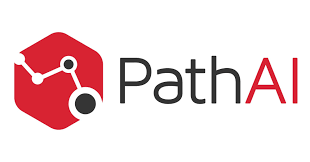
What You Should Know:
– PathAI, a global leader in AI-powered pathology, unveiled two novel AI products, PathExplore™ Immuno-Oncology Profiling (IOP) and IHC Explore1™ to empower cancer drug developers and clinical researchers with AI-powered insights.
– The product pairing provides unprecedented single-cell and spatial resolution of the tumor microenvironment from routine pathology samples to facilitate biomarker discovery and deeper understanding of treatment response for the next generation of cancer therapeutics.
Enhancing Tumor Characterization and Biomarker Identification with AI-Driven Pathology Tools
The expansion of the Explore™ portfolio coincides with the rapid large-scale adoption of AI-pathology in the diagnostic and biopharma industries. This growth highlights the increasing importance of advanced diagnostic tools in improving patient outcomes.
A crucial element in determining which tumors are likely to respond to immunotherapy is the composition of the tumor immune microenvironment. PathExplore IOP accelerates the characterization of immune phenotypes by quantifying tumor-infiltrating lymphocytes (TILs) and their spatial distribution using routine hematoxylin and eosin (H&E) samples. This innovative product allows researchers to assess TIL spatial arrangements within the tumor core and periphery, providing insights into the sample’s immune-inflamed, desert, or excluded characteristics.
PathExplore IOP is specifically designed to quantify patterns of immune infiltration that indicate a strong immune response, ultimately leading to improved patient survival. Although immune infiltration has been shown to be prognostic of positive outcomes, standardized and scalable methods for investigating these phenotypes have been elusive until now.
In addition to PathExplore IOP, Immunohistochemistry (IHC) remains a widely utilized method for identifying cancer-specific biomarkers, informing treatment strategies, measuring prognosis, and classifying patients for clinical trials. However, IHC scoring in early clinical settings can be time-consuming, subjective, and low-resolution. Defining an optimal scoring system for a novel IHC assay, especially in early-stage biomarker development, presents a significant challenge.
IHC Explore™ addresses this need by providing spatial quantification of IHC biomarkers at single-cell resolution with broad target compatibility. It offers a panel of standardized and structured features to quantify IHC stain abundance within and around cells in the tumor microenvironment. This enables drug developers to build biomarker scoring strategies from scratch for most IHC stains, allowing for precise identification of patients most responsive to treatment.
PathAI’s partnership with Roche enhances the translation of these AI insights and scoring strategies into companion diagnostic development, streamlining the process and making it more efficient. Together, these advancements in AI-driven pathology tools are poised to significantly impact cancer diagnosis and treatment, offering new hope for improved patient outcomes.
“As cancer rates continue to rise, the demand for advanced precision medicine tools that provide accurate biological insights has never been greater. Our mission to make a difference in patient lives is unwavering, and these new products showcase our commitment to providing researchers with the tools they need to make meaningful advancements in cancer research, treatment and care,” said Andy Beck, PathAI CEO. “We’re thrilled to introduce these two groundbreaking products ahead of the American Society of Clinical Oncology annual meeting.”

